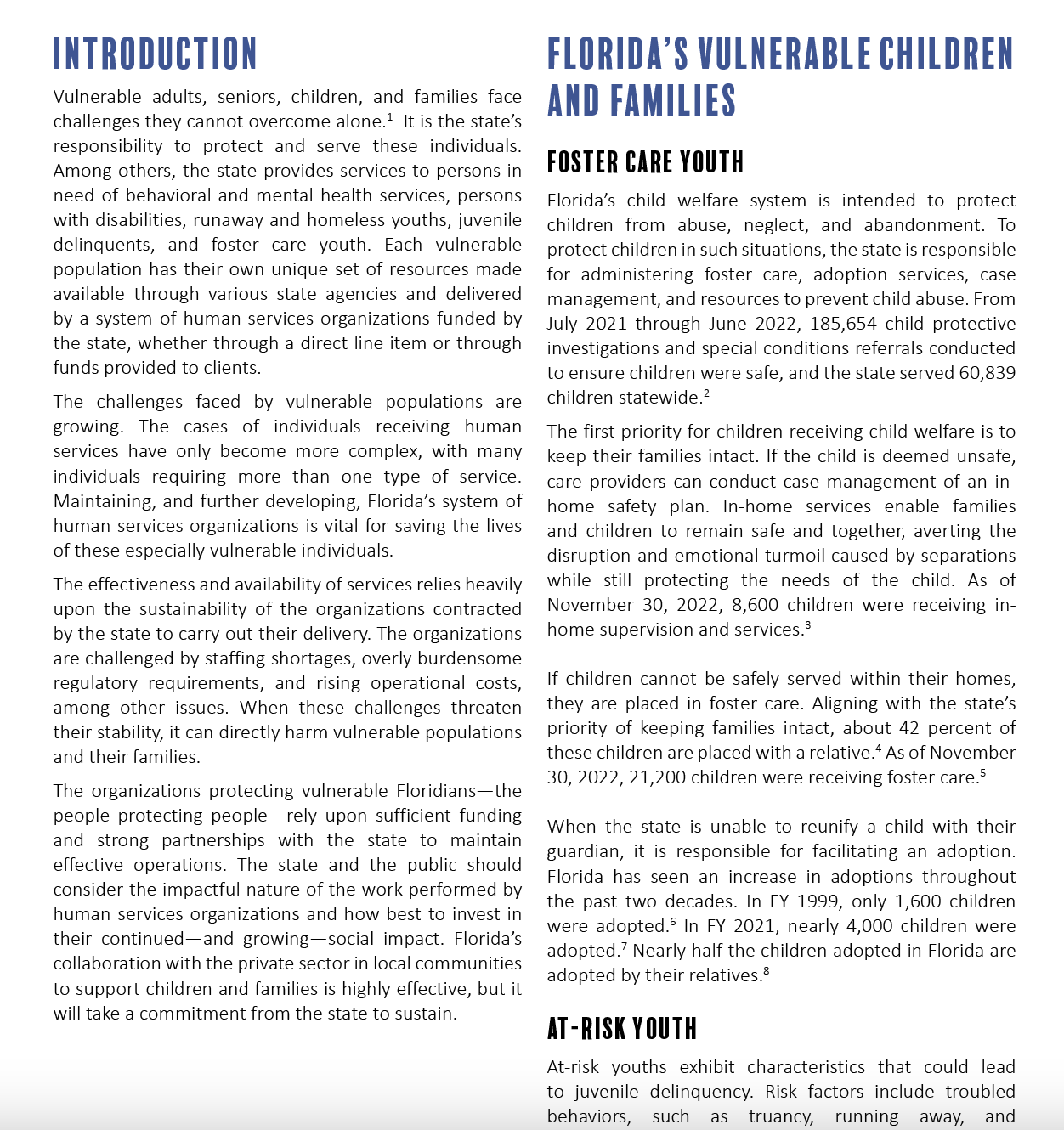Stronger Families: Protecting Florida’s Vulnerable Populations
 When Florida first pursued the decentralization of human services in the 1990s, the notion was novel. Since then, Florida developed robust, home-grown, highly effective systems of care—often considered one of the best across the country—that serve a wide range of needs for its vulnerable populations. This decentralized approach also saves the state money because of the relatively low cost of human services organizations, coupled with their management efficiency, transparency, and accountability of taxpayer dollars. Despite the success Florida has achieved, the challenges noted in this report must be addressed to ensure optimal care for Florida’s most vulnerable adults, seniors, children, and families.
When Florida first pursued the decentralization of human services in the 1990s, the notion was novel. Since then, Florida developed robust, home-grown, highly effective systems of care—often considered one of the best across the country—that serve a wide range of needs for its vulnerable populations. This decentralized approach also saves the state money because of the relatively low cost of human services organizations, coupled with their management efficiency, transparency, and accountability of taxpayer dollars. Despite the success Florida has achieved, the challenges noted in this report must be addressed to ensure optimal care for Florida’s most vulnerable adults, seniors, children, and families.
There are many vulnerable children and families throughout Florida who look to the state, and the human services organizations who contract with the state, to provide access to needed services. As Florida’s population continues to grow, it will be especially important that Florida’s systems of care are funded appropriately to meet the growing demand for services.
It is imperative that the partnerships between state agencies and organizations that facilitate these systems of care have the stability and support to continue providing these crucial services to Floridians. Florida cannot take its eye off the prize—achieving the best outcomes for the vulnerable children and families that are served by this locally-oriented approach—for one minute. Through the Stronger Families Initiative, Florida TaxWatch is committed to supporting the state as stakeholders, policymakers, and administrators responsible for the delivery of services try to secure the best outcomes for vulnerable children and families. Florida TaxWatch believes we can best support our vulnerable children and families by supporting the agencies and human services organizations that provide their services, the people who protect people.